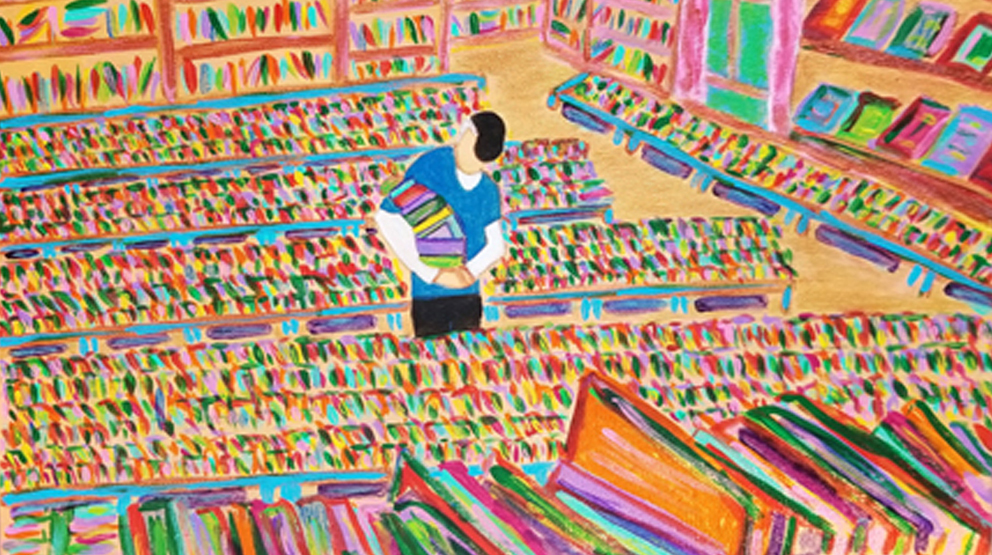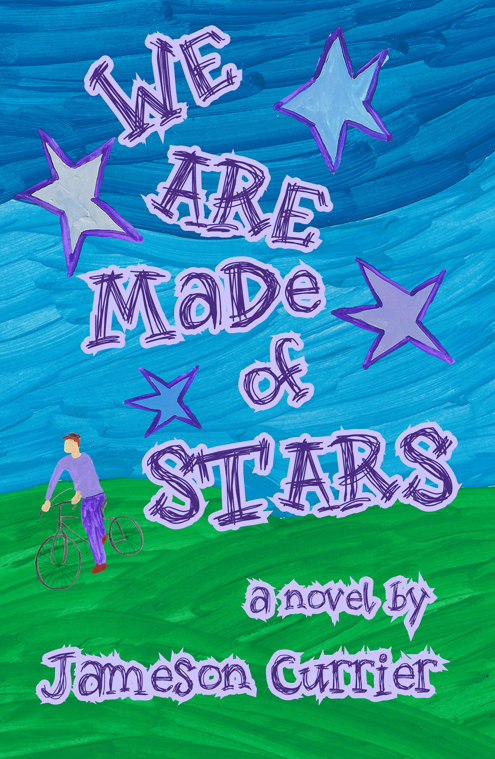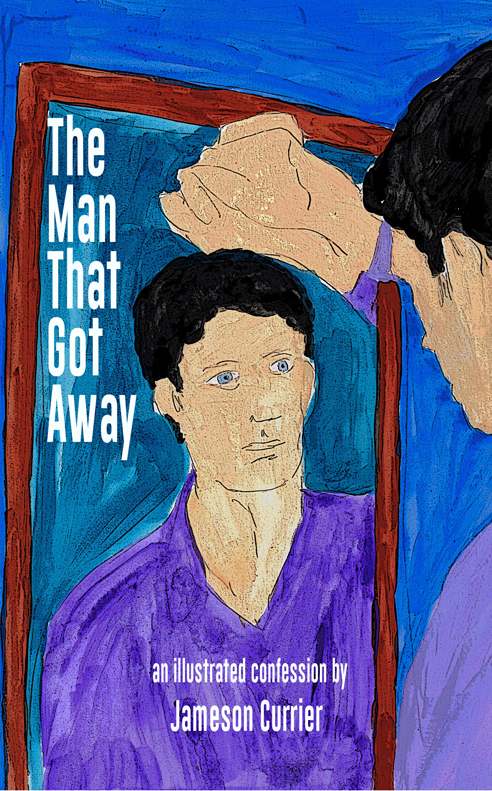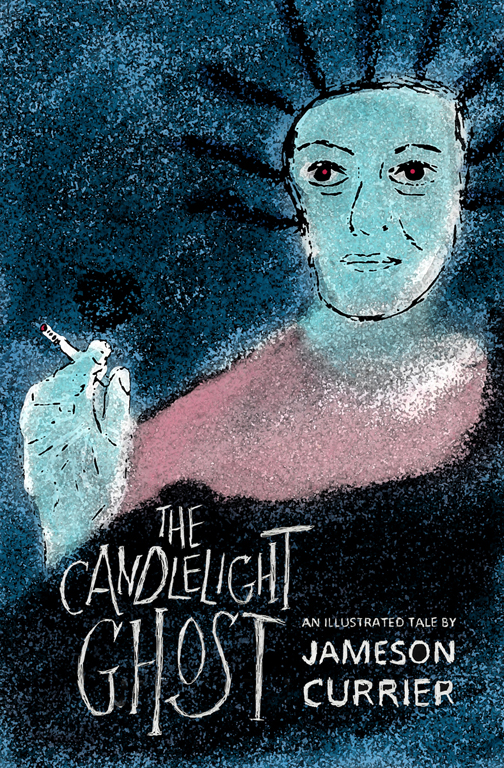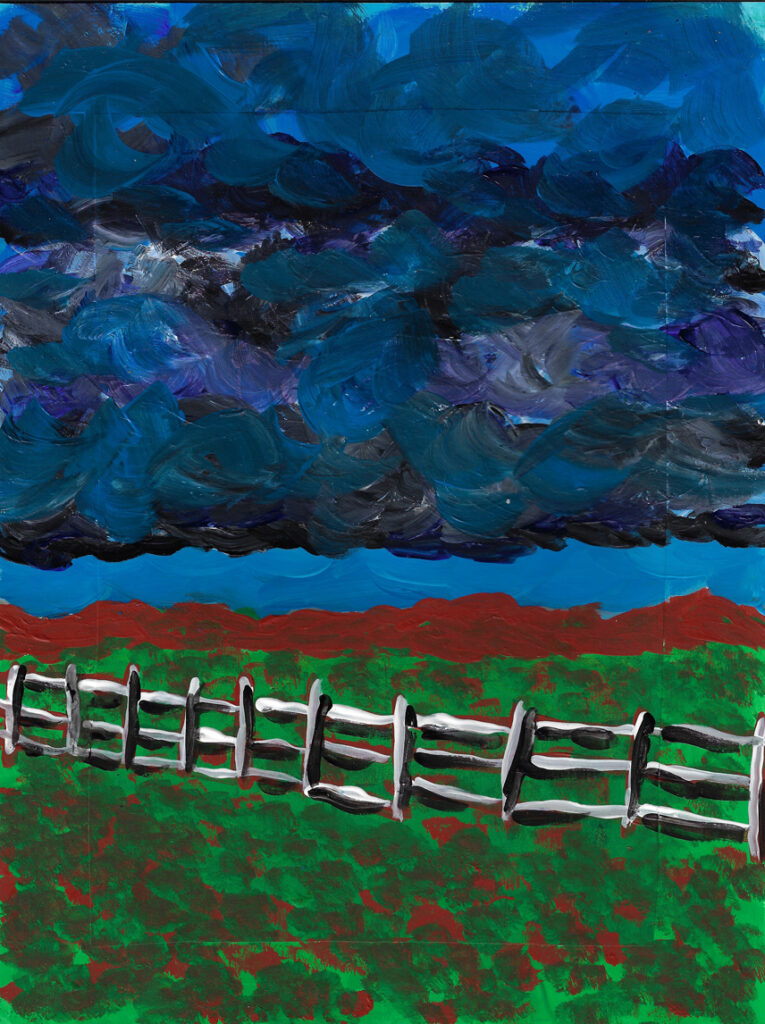
illustration by Jameson Currier
A GATHERING STORM
by Jameson Currier
While assembling material for this collection, I was searching through my old computer disks for an essay that I was certain I had written in October 1998 in the days following the beating of Matthew Shepard, a gay college student at the University of Wyoming who was beaten, tortured, tied to a fence and left to die near Laramie, Wyoming. I had participated in the October 19, 1998 rally against hate crimes and the impromptu demonstration down Fifth Avenue in Manhattan and I was sure that I had written about the experience.
What I stumbled across, instead, was the manuscript of a novel I had begun in the aftermath of Matthew Shepard’s death. Writing the book had been both a rewarding and painful experience, but I had chosen to forget about my novel because of the personal disappointment I had attached to it.
Like many gay Americans I was moved by the tragic fate of Matthew Shepard, and in the days following the crime I struggled to pull together portraits of the victim and the assailants from the emerging news. One reason why I decided to write A Gathering Storm, a novel about a hate crime against a gay man, was because I felt what was missing from the news were the details and stories of the individuals involved—the crime was analyzed and politicized but oddly not humanized. We did not know who these young men were, what they were thinking, what were they doing, why had they been where they were when things went wrong. We only had their generic representations in the media. The national focus on the issue of hate crimes seemed to overwhelm the personal stories.
I finished writing the A Gathering Storm in early 2001 and I submitted the manuscript to my editor at the publishing company that had published my first novel and had an option of first refusal on my next one. My contract called for a six-week response, but because I was an unagented writer the manuscript languished at the publishing company, never generating any attention or a formal rejection until my editor casually informed me that he was leaving the press to begin another career.
In spite of this I secured the services of a literary agent to represent the novel, who shopped the manuscript around without much success, and, in my estimation, without much enthusiasm on his part, so I began shopping it around myself to additional publishers and editors. After I found a British publisher who was interested in the novel, the agent declined to act on my behalf, and interest faded away when the British publisher—who saw A Gathering Storm as a commercial thriller and not a literary novel—was concerned that I did not have another thriller ready to go as a follow-up.
By then Matthew Shepard had been the subject of too many movies, plays, books, and dramatizations. One editor at a mainstream house declined the manuscript stating “the Shepard murder was discussed and dramatized and debated in the media so much that this novel may have a hard time finding an audience.” A Gathering Storm was both too similar and too different. My novel was fiction that read like fact. I had consciously changed many details, including moving the location to a college town in the South. During the aftermath of the Shepard murder, the town of Laramie, Wyoming, where the beating and murder occurred, fell under tremendous scrutiny. News reports and other works based on this crime focused sharply on the town. It was my intent to step aside from this location and show that this type of crime could happen anywhere. In choosing to locate this story in the South, I was also able to draw from many of my own experiences and memories and to write it as a story I felt I could tell.
During the course of writing the novel I had also rewritten many details about the Shepard crime and the characters involved with it, weaving in details from other hate crimes against gay men. More importantly, however, I was peering inside the emotional lives of the characters who were living inside my mind, not just presenting the facts. Fiction can oftentimes carry more emotional weight than a news story or a nonfiction account and it was my intent with this work to present a more human face to this tragedy than what was emerging through other works, both in terms of understanding the deep suffering of the victims as well as looking into the psychological motivations and backgrounds of those behind the crimes.
And I had made a conscious decision to write this novel in a different style from the long, complex sentence structure I had favored in my first novel, Where the Rainbow Ends. A Gathering Storm is a deconstruction of a crime and this time my prose was purposely short and choppy, like a screenplay. I wanted the visuals to rise immediately off the page and to do so I had, in fact, studied many screenplays and true crime narrative accounts and the way they presented both dialogue and action. And since I was deconstructing the crime, I also wanted to deconstruct the narrative structure of the novel, presenting it as linear, circular, and fragmented.
Sometime in 2003 I formally severed ties with the literary agent and abandoned the manuscript to pursue other projects. I never expected the novel to be published and had been so upset by the experience of both writing the book and not finding a publisher for it that I had stored all the notes and drafts of the novel into a box and hid the box at the bottom of a closet in my apartment, out of sight and incapable of wounding me any further. But there it was, A Gathering Storm, always at the top of a list of my completed work that I keep on a bulletin board above the desk where I write, ignored and overlooked until I saw it there again while I was looking for my Shepard essay. Even as I copied the manuscript files of the novel from the floppy disk to my laptop to archive it, I did not anticipate publishing the work because I felt it was surely outdated, even though other authors had revisited the Matthew Shepard crime and had published recent books about it.
What I discovered when I sat down to reread A Gathering Storm was a densely absorbing work full of purpose, a novel that I cannot believe I walked away from and I cannot believe I did not find a publisher for. My faith in it had been shattered by the kind but continued rejection of it. One editor who turned down the manuscript remarked on its “enormous integrity” and found it “refreshing to read a manuscript that is informed by such passion.” Another called it “a shocking yet timely story that truly gets to the heart of gay hate in America.” Still, no one offered to publish it.
I see now that this novel is a bridge to other themes in my later writings, particularly the gay-themed ghost stories that I would publish later in the decade. But I also see it indicative of the evolution of the gay novel during the first decade of the twenty-first century—how it fell victim to mainstream publishers only wanting commercial blockbusters and how smaller publishers decided to mimic this desire—and how during these years gay authors such as myself, because of our gay themes and narratives and characters and the choices of our fictions—had to find other publishers and other ways and outlets to continue to be published and to find readers. I began Chelsea Station Editions to publish work that was overlooked and ignored by other publishers, worthy gay-themed literature that needed to find its way into print, and I am grateful for the advances in technology, economics, and business and trade practices that have allowed me to do so. I have never been a writer who has chased financial or critical success, only a place to publish what I have wanted to write and what I felt needed to be written and shared. I never expected to be a publisher or a bookseller. But I am extremely proud to say that I have created the perfect home for A Gathering Storm.
_________________
“A Gathering Storm” first appeared as the introduction to the novel of the same name by Jameson Currier, published by Chelsea Station Editions in 2014, and was reprinted in the author’s memoir, Until My Heart Stops, published by Chelsea Station Editions in 2015.
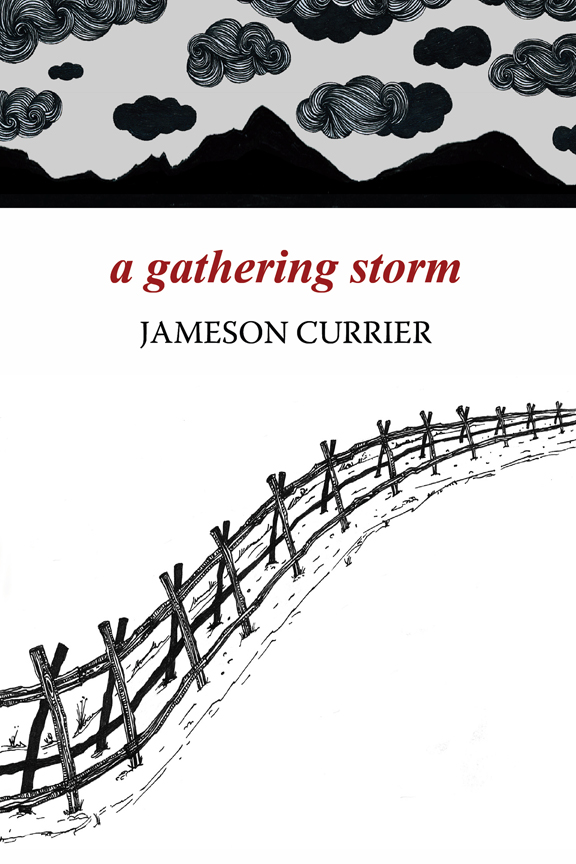
A Gathering Storm by Jameson Currier was a Lambda Literary finalist in Gay Mystery. Until My Heart Stops was a Lambda Literary Finalist in Gay Memoir/Biography.
